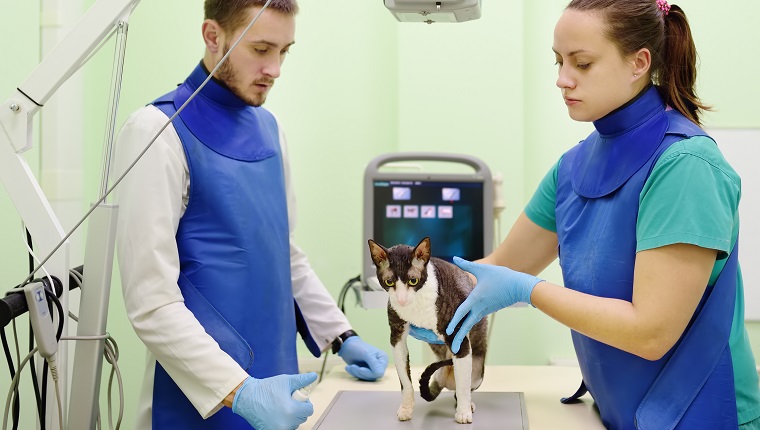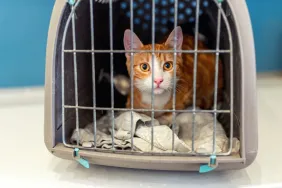Myeloma in cats is a comparatively rare form of bone marrow cancer that involves malignant plasma cells building up in a cat’s bone marrow.
This condition develops most frequently in older cats, and in some studies, male felines have proven to have a slightly higher risk of developing it that females.
If you see signs that your cat might be suffering from this type of cancer, then you must consult your veterinarian for a proper diagnosis and course of treatment. Here’s what you should know about the symptoms, causes, and treatments of myeloma in cats.
Symptoms Of Myeloma In Cats
Myeloma in cats can present a range of symptoms depending on the precise location and the severity of the condition. Some of the most common symptoms include:
- Fever
- Acting weak and seeming lethargic
- Drinking more water and urinating more than usual
- Losing weight
- Difficulties breathing
- Bleeding frequently and excessively
Causes Of Myeloma In Cats

The precise cause of myeloma in cats unknown. Some have speculated that exposure to certain toxic chemicals, including cigarette smoke and industrial pollutants, can bring on a case.
In general, cats who are over twelve years old seem to have a higher likelihood of developing the condition than younger kitties. Additionally, some studies have found that male cats have a higher risk than females.
Veterinary Treatments
If you suspect that your cat is developing myeloma, your veterinarian will ask you a series of questions that focus on your cat’s medical history and lifestyle. Additionally, they’ll place special focus on examining your cat’s eyes when evaluating a potential case.
The vet will carry out blood and urine tests with the intention of ruling out other medical conditions that may cause similar symptoms. They can also use X-rays and ultrasound imaging to examine your cat’s organs and confirm a diagnosis.
When it comes to treatment, vets often recommend a blood cleansing process. They’ll need to carry this out in the animal hospital. Additionally, vets commonly use radiation therapy on affected areas of the body.
Vets often recommend antibiotics as a way to fight any infections that might have also appeared. As ever, if your vet prescribes your cat any medicine, it is vital that you stick to the precise dosage and frequency instructions, along with completing the full course of medication.
After undergoing any medical procedures, it is important that your kitty keeps up regular visits to their vet, along with carrying out frequent blood tests.
Has your cat developed myeloma? What kinds of treatments does your vet provide? Tell us all about it in the comments below.









